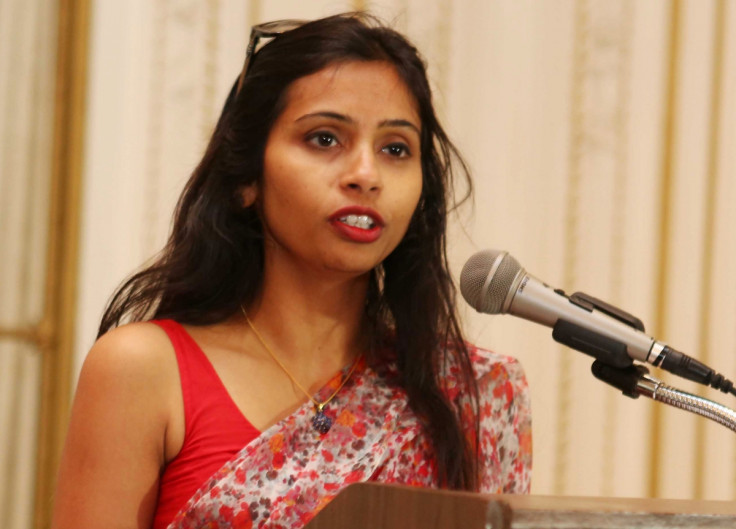India: US Diplomat Underpaid Filipina Maid and School Teachers Evaded Taxes

After quizzing US officials about the financial aspects of a school run by the American embassy in New Delhi, India is determined to push a tax probe on the teachers in the elite school.
The American school in the Indian capital has been charged with "institutionalised fraud" on visa norms, tax rules and misuse of diplomatic privileges in the category of "tax exempted teachers" granted in 1973, the local media reported.
The Indian Income Tax Department's hawk-eyed investigation into alleged tax violation and breach of visa rules by American teachers is another blow to bilateral ties, already strained by the prosecution of one of New Delhi's top diplomats in New York.
Meanwhile, New Delhi is also training guns on the norms under which US diplomats are employing domestic maids. Preliminary investigations have indicated that India has identified several cases of breaches.
One of the contracts between a Mumbai-based US diplomat and his Filipina maid, under investigation by the government, states that the maid is paid less than $3 per hour, much less than minimum wage in the US, according to Times of India.
School investigation
India had requested the American embassy for details of the teachers working at the school, their bank account details and the payroll specifics in late December, but is still awaiting response.
In 1973, India had entered into an agreement with the US on tax exemption status to a limited number of employees working at the embassies and ancillary organisations.
But it came to light in late December that some of the spouses of the teachers who listed their profession as "housewife" in visa applications, and not officially eligible for tax exemption, were not only employed by the school, but were also not on rolls.
Indian authorities say this implied deliberate visa swindle and evasion of taxes due to the Indian exchequer.
The Indian government has expressed grave concern over these violations, and is likely to proceed with law enforcement.
"We are aware of the reports. These are serious issues relating to visa and tax matters. We will examine them very carefully," Syed Akbaruddin, spokesperson of the External Affairs Ministry told reporters.
Irregularities
When prodded about the irregularities at the school, US embassy spokesperson Peter Vrooman told the Hindustan Times that "these diplomatic communications continue," and diverted the reporter to the state department.
The local media has pointed out that India's crusade against the embassy school on charges of "visa fraud" comes in the wake of accusations levelled against diplomat Devyani Khobragde, who was evicted from the US after a case was filed against her on visa fraud charges.
The US prosecutors have refused to withdraw charges against the Indian diplomat, prompting India to inspect American embassies for similar offences.
Domestic Help Offences
The US state department has shrugged off the allegation of exploitation of labour by its staff, saying that the salary paid to local staff of US diplomats is based on "prevailing wage rates and compensation practices''.
However, unlike the contract between Khobragade and her maid Sangeeta Richard, this contract does not even mention hours of work.
The contract says the Filipina maid would work "six full workdays per week'' at a salary of $458 per month. Even if it is assumed that she worked only eight hours per day, she appears to have worked well over 40 hours per week.
The Filipina also had only five days off apart from a 12-day annual leave, and no provisions were made for her to visit home during her three years of work.
On the other hand, all domestic helps staying with Indian diplomats are entitled to a return air ticket after completing a year's stay abroad, Indian authorities have pointed out.
Like Richard, the Filipina maid too has rent-free accommodation, free internet and food allowance, but Indian lawyers have pointed out that as a health-security cover, Filipina maid only had a medical insurance, but Richard had a 100-per-cent medical cover under which all such expenses were borne by the Indian government.
The contract with the Filipina maid specifies that all issues of employer negligence will be decided by the employer alone. No recourse to local, US or even Philippines courts were allowed under the contract, it has been alleged.
Indian authorities believe the Khobragade contract was more favourably inclined towards the maid because the maid was actually paid $9.75 per hour, as promised in the employment contracts, in the form of amount reimbursed to her husband in India and cash payments and "permissible deductions'' for various services in the US.
The US embassy as yet has not responded to the questions raised on the contract between US diplomat and the Filipina maid.
© Copyright IBTimes 2025. All rights reserved.





















